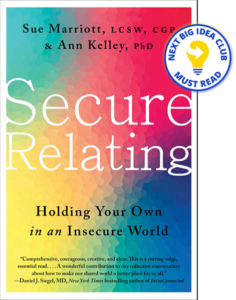Podcast: Play in new window | Download (Duration: 55:08 — 126.2MB)
Subscribe: Apple Podcasts | Spotify | Amazon Music
Exploring the science behind the complex acronyms
 problems both internally and relationally. Learn the difference between defenses that feel right (Egosyntonic) and those that don't (Egodystonic) and why it's important to work against them for change. This episode is a dive into the role of EDTS in individual therapy, and highlights the need for an integrated approach to address underlying trauma, plus much more!
problems both internally and relationally. Learn the difference between defenses that feel right (Egosyntonic) and those that don't (Egodystonic) and why it's important to work against them for change. This episode is a dive into the role of EDTS in individual therapy, and highlights the need for an integrated approach to address underlying trauma, plus much more!“Turning against defenses is key to creating change.” – Dr. Deborah Pollack
Time Stamps for Challenging Defenses: An Introduction to Experiential Dynamic Therapies (EDTS)
00:00 Introduction to Experiential Dynamic Therapies
04:07 Understanding Defenses and Creating Change
08:19 Turning Against Defenses
13:49 Building Capacity and Accessing Core Feelings
20:05 Working with Resistance and Anxiety
23:49 Exploring Different Models within EDTs
29:22 Understanding and Working with Defenses
36:14 Building Capacity and Regulating Emotions
39:05 Challenging Defenses and Facilitating Character Change
45:04 Integrating Modalities for Comprehensive Healing
48:31 The Role of the Therapist in Addressing Defenses
54:49 Compassionate and Supportive Therapeutic Relationships
About our Guests – Dr. Deborah Pollack & Margaret Martin, LCSW
Dr. Deborah Pollack is an Associate Professor of Psychology at Utica University and a clinical
 psychologist in private practice near Syracuse, New York. She also has faculty appointments at SUNY Upstate Medical University and Syracuse University, where she teaches and supervises doctoral students in psychology. Dr. Pollack is active on the board of the International Experiential Dynamic Therapy Association (IEDTA), serving as recording secretary and on several
psychologist in private practice near Syracuse, New York. She also has faculty appointments at SUNY Upstate Medical University and Syracuse University, where she teaches and supervises doctoral students in psychology. Dr. Pollack is active on the board of the International Experiential Dynamic Therapy Association (IEDTA), serving as recording secretary and on several
standing committees. She is the President-elect of the Central New York Psychological Association. Dr. Pollack is a qualitative researcher and most recently has investigated the application of EDT-informed therapy for mothers with postpartum mood and anxiety disorders. She has been studying the EDTs since 2009 and is certified as a Teacher and Supervisor through the IEDTA. She is currently running a core training in ISTDP and she also offers individual supervision in ISTDP for licensed or license-eligible therapists. In her free time, Deb enjoys traveling, sewing, and hiking, especially in the Adirondack
mountains where she is working on hiking all 46 high peaks.
Margaret Martin, LCSW is an individual and couple therapist practicing in Austin, Texas,
where she specializes in complex trauma. She began training with Stan Tatkin,
 developer of the PACT model, in 2012. She now coaches PACT level one and two students and provides training for the PACT Institute, and hosts a monthly online discussion group for PACT and PACT-curious therapists. In 2022 Margaret completed the PACT Institute’s inaugural invitation-only certification program and is one of 25 therapists worldwide to receive the designation of PACT-certified therapist. In 2019 she began training in ISTDP and developed a passion for incorporating aspects of ISTDP into her work with couples. With colleague Kathryn Barksdale, Margaret co-developed Trauma Wise Therapy, a framework for working with high-trauma couples. Margaret active on the board of the International Experiential Dynamic Therapy Association (IEDTA) and chairs the IEDTA Diversity Committee. A self-described training junkie, she also trained in Somatic Experiencing, Eye Movement
developer of the PACT model, in 2012. She now coaches PACT level one and two students and provides training for the PACT Institute, and hosts a monthly online discussion group for PACT and PACT-curious therapists. In 2022 Margaret completed the PACT Institute’s inaugural invitation-only certification program and is one of 25 therapists worldwide to receive the designation of PACT-certified therapist. In 2019 she began training in ISTDP and developed a passion for incorporating aspects of ISTDP into her work with couples. With colleague Kathryn Barksdale, Margaret co-developed Trauma Wise Therapy, a framework for working with high-trauma couples. Margaret active on the board of the International Experiential Dynamic Therapy Association (IEDTA) and chairs the IEDTA Diversity Committee. A self-described training junkie, she also trained in Somatic Experiencing, Eye Movement
Desensitization Reprocessing, Emotional Transformation Therapy, Brainspotting, and Accelerated Resolution Therapy. She is slightly fanatic about trauma-informed care, deliberate practice for therapists, cats, and fiber arts of any kind.
Resources for this Episode – Challenging Defenses: An Introduction to Experiential Dynamic Therapies (EDTS)
Margaret Martin, LCSW – Margaret Martin's website
Deborah Pollack, PhD – Dr. Deborah Pollack's website
Check out the most anticipated conference for Experiential Dynamic Therapists!! San Diego, CA –  November 13th-15th – IEDTA’s 2024 conference highlights the power of the therapeutic alliance in psychotherapy. Register here!
November 13th-15th – IEDTA’s 2024 conference highlights the power of the therapeutic alliance in psychotherapy. Register here!
IEDTA Certified Training – Info on training in Experiential Dynamic Therapies
Application to join the EDT List
Additional resources on ISTDP and Experiential Dynamic Therapies
Intensive Short Term Dynamic Psychotherapy by Patricia Coughlin – Recommended by Margaret Martin
Reaching Through Resistance by Allan Abbass – Recommended by Margaret Martin
Intensive Short-Term Dynamic Psychotherapy: A Reference by Nat Kuhn MD – Recommended by Margaret Martin
Treating Affect Phobia: A Manual for Short-Term Dynamic Psychotherapy by Leigh McCullough, et al – Recommended by Margaret Martin
Healing through Relating: A Skill-Building Book for Therapists by Jon Frederickson – Recommended by Margaret Martin
Changing Character: Short-term Anxiety-regulating Psychotherapy For Restructuring Defenses, Affects, And Attachment by Leigh Mccullough Vaillant – Recommended by Margaret Martin
Mastering Intensive Short-Term Dynamic Psychotherapy: A Roadmap to the Unconscious by Josette ten Have-de Labije and Robert J. Neborsky – Recommended by Margaret Martin
The Lies We Tell Ourselves by Jon Frederickson – Recommended by Margaret Martin
The Transforming Power Of Affect: A Model For Accelerated Change by Diana Fosha – Recommended by Margaret Martin
A Therapist’s Handbook to Dissolve Shame and Defense and Master the Moment by Susan Warren Warshow – Recommended by Margaret Martin
Hidden From View: A clinician's guide to psychophysiologic disorders by Allan Abbass – Recommended by Margaret Martin

And of course, our book is also a great resource – it's for professionals and life-long learners of all kinds.
Get your copy of Secure Relating here!!
If you've read it we'd love to hear from you and if you support it, PLEASE please please leave a review on either Amazon or Goodreads. Tk you!!
Events, Announcements & Resource Links
Integrative Attachment Therapy Course Information
Therapists: THIS is our recommended class for the most comprehensive training on attachment out there. It just so happens it is also Dennings recommended program as discussed in this. episode! Use our link for a discount!
Mind, Body, Social, & Spiritual Approaches for Healing Attachment: 30 World-Leading Pioneers Share Their Best Practices – Register now for the Holistic Attachment Summit!! – This summit will explore the most essential ideas in attachment theory, research, and how they can be applied to create deep and lasting healing for clients — enabling you to be at the forefront of evidence-based care. Click here to register!!
Trauma Therapy Directory – Resources for Trauma, PTSD, and Complex PTSD – Created by our friends at the Trauma Therapy Network!
Check out our other past and upcoming events here!!
Support this library of content at TU staying FREE and TOTALLY ACCESSIBLE by supporting our partners and the sponsors of today's episode –

Our favorite skin quencher. Use the code TU when you checkout at oneskin.co

Become the best version of yourself and get 15% off Ned products with code TU.














